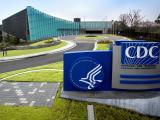May 28, 2009 (CIDRAP News) Sen. Amy Klobuchar, D-Minn., today announced plans to introduce legislation designed to improve the nation's response to foodborne illness outbreaks by promoting use of some of the tools that helped Minnesota officials find the sources of two recent widespread Salmonella outbreaks.
At a press conference in Minneapolis, Klobuchar said better outbreak response at the national level can save lives, prevent illnesses, and reduce costs for healthcare systems and government agencies. During the 2008 Salmonella Saintpaul outbreak linked to hot peppers and the 2008-09 Salmonella Typhimurium outbreak linked to peanut products, she said, more than half of the people got sick before any consumer advisories or product recalls were released.
She credited Minnesota officials with identifying the contaminated foods in both instances, thanks to the high priority they assigned to the investigations. Minnesota has a special team, nicknamed "Team Diarrhea," that quickly conducts intensive case control studies, a public health laboratory that quickly runs DNA tests on patient samples, and an agriculture department that collaborates closely with the health department. The University of Minnesota's School of Public Health has also served as a key resource for outbreak investigation training and expertise, she said.
"The nation should not have to wait until someone gets sick in Minnesota to solve complicated cases," she said. "The problem is that the responsibility to investigate potential foodborne diseases rests largely with local and state health departments, and there is tremendous variation in terms of the priority they give to this responsibility."
Klobuchar told reporters she will introduce the Food Safety Rapid Response Act of 2009 within the next 2 weeks. The bill would:
- Direct the Centers for Disease Control and Prevention (CDC) to enhance the nation's foodborne illness surveillance system through various steps, including improving tools for detecting case clusters, coordinating surveillance efforts, expanding system capacity, and promoting participation by local, state, and federal agencies and the food industry
- Direct the CDC to provide foodborne illness investigation support and expertise to state health agencies and laboratories and promote "best practices" for the investigations
- Establish regional "Food Safety Centers of Excellence"collaborations between universities and state public health agencies to help train and support public health officials
Klobuchar didn't detail a way to fund the new measures, but said the legislature would likely complement the FDA Food Safety Modernization Act, a bill introduced in March by a bipartisan group of senators, which includes a funding mechanism along with new authorities and reforms for the Food and Drug Administration (FDA).
Improving the nation's foodborne illness outbreak response, she said, isn't necessarily an expensive proposition: "Some people are using bad practices."
Michael T. Osterholm, PhD, MPH, director of the University of Minnesota Center for Infectious Disease Research and Policy, publisher of CIDRAP News, said at the press conference that the United States has a relatively safe food supply, but when outbreaks occur, the complexity of the system can make investigations difficult. Also, he said the just-in-time economy means that food flows quickly through the supply system, decreasing the time that outbreak investigators have to gather contamination clues.
"This [new legislation] won't make food safer, but it will prevent illnesses, and that's what public health is all about," Osterholm said.
Craig Hedberg, PhD, a foodborne disease expert at the University of Minnesota in Minneapolis, told reporters that the CDC's PulseNet system has been a useful tool for detecting genetic matches among foodborne pathogens in samples submitted by state laboratories. "But the epidemiology has not kept up," he said, adding that more timely and thorough interviews are needed to quickly and accurately identify contaminated foods.
After the press conference, Hedberg said fixing the nation's outbreak response system would require the CDC to take on a strong leadership role by setting clear expectations for states. "States have been deferring to the CDC and the CDC has been deferring to states," he said. "It's a system of mutual deferral."
Though the CDC doesn't have legal authority to make or change state laws, it has the moral authority to take on a more active role in encouraging states to make rapid and sound outbreak investigations a high priority, Hedberg said.




















